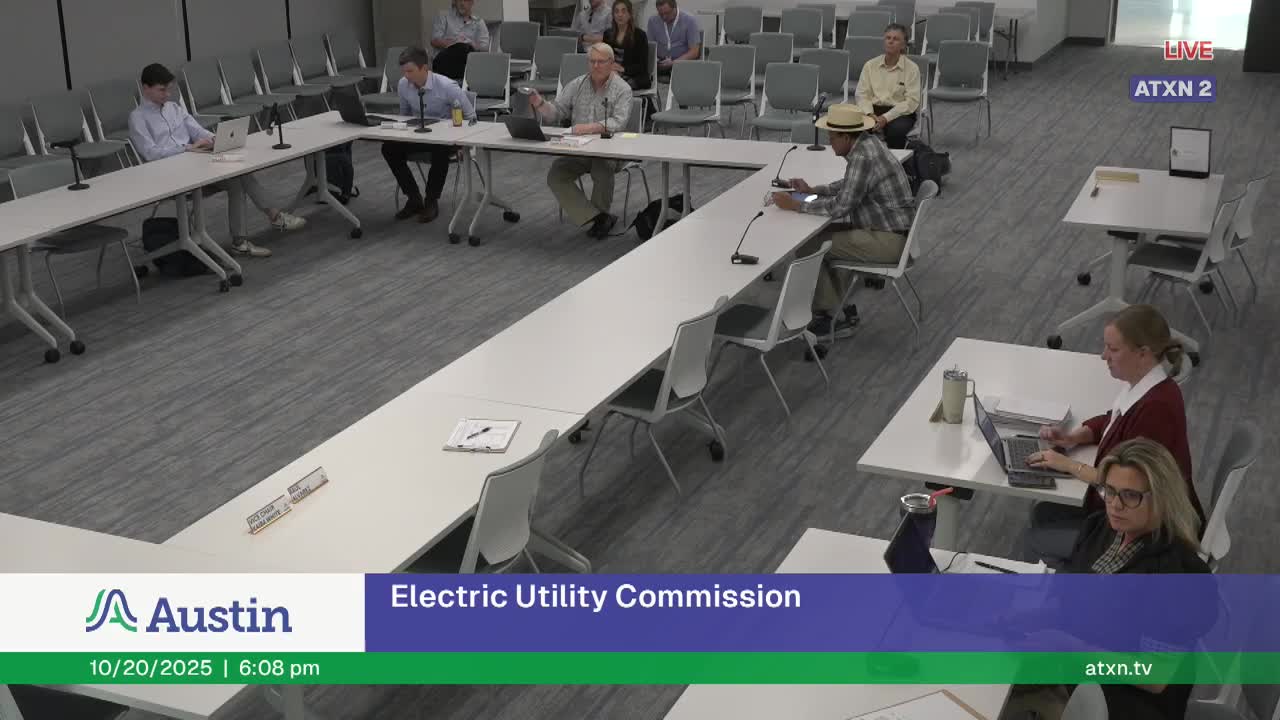Public commenters describe hardship and urge donations to Austin Energy utility‑assistance funds
Get AI-powered insights, summaries, and transcripts
Subscribe
Summary
Two public commenters told the EUC about personal harm from utility account delays and urged support for three Austin Energy utility‑assistance funds; a speaker outlined the funds' purposes and urged outreach to increase donations.
Two members of the public addressed the Electric Utility Commission during public communication on Oct. 20, describing personal harm tied to utility account processing and urging support for Austin Energy’s donation funds that help households in need.
Resident Sarah Black described an incident in 2008 when she said an attempt to put electric service into her name took about 20 days and left her without power; she said the delay resulted in lost food and ultimately eviction from her apartment. “I lost all the food in my refrigerator,” Black said in public comment, adding she considered electricity an essential service after her experience.
Later, Scott Johnson briefed commissioners about three donation funds tied to utility bills: the customer assistance (CAP) plus‑1 fund, a Parks and Libraries fund (former TREE Fund elements that now fund scholarships and library digital materials), and the Homeless Student Assistance Fund (recently renamed from Public School Energy Assistance Fund). Johnson said those funds aid families who cannot otherwise afford camps, libraries’ digital resources and supports for students experiencing homelessness. He asked for better outreach and an annual donor option to simplify donations, and noted Austin Independent School District receives about 60% of Homeless Student Assistance Fund allocations among the seven school districts in Austin Energy’s service territory.
Johnson also urged commissioners and staff to promote the funds via utility newsletters and said staff had indicated a new program could help increase contributions. Staff acknowledged the outreach and said communications materials would be forthcoming.
The commission did not take formal action during public comment but later asked staff to follow up on requests for program details during the CAP briefing.
Quotes are drawn from the Oct. 20 transcript and attributed to the speakers who appeared on the record.
